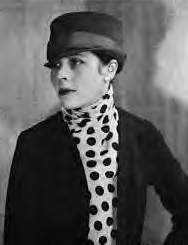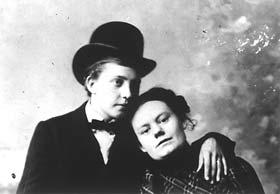"Nay, nowhere,
 ...in all the fulsome data of most uncovered and naked backrunning of Nature, nor in the Columns of our most jaundiced Journals, can be gathered the vaguest Idea of the Means by which she puts her Heart from her Mouth to her Sleeve, and from her Sleeve into Rhetorick, and from that into the Ear of her beloved. To the Ancients, Love Letters and Love Hearsay (though how much Luck and how much Cunning this was on the part of the Outrunners in the Thickets of prehistoric probability, none can say, for doubt me not but from Fish to Man there has been much Back-mating and Front to Front, though only a Twitter of it comes out of the Past) were from like to unlike. Our own Journals teem with Maids and their Beards, whose very highest encomiums reach no more glorious Foothold than 'Honey Lou,' or 'Snooky dear,' or 'my great big, beautiful bedridden Doll,' whose Turnabout it would seem, is only one side proper to the Lord."
...in all the fulsome data of most uncovered and naked backrunning of Nature, nor in the Columns of our most jaundiced Journals, can be gathered the vaguest Idea of the Means by which she puts her Heart from her Mouth to her Sleeve, and from her Sleeve into Rhetorick, and from that into the Ear of her beloved. To the Ancients, Love Letters and Love Hearsay (though how much Luck and how much Cunning this was on the part of the Outrunners in the Thickets of prehistoric probability, none can say, for doubt me not but from Fish to Man there has been much Back-mating and Front to Front, though only a Twitter of it comes out of the Past) were from like to unlike. Our own Journals teem with Maids and their Beards, whose very highest encomiums reach no more glorious Foothold than 'Honey Lou,' or 'Snooky dear,' or 'my great big, beautiful bedridden Doll,' whose Turnabout it would seem, is only one side proper to the Lord."Djuna Barnes, excerpted from "July" of The Ladies Almanack



